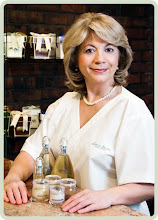Sensitive Skin Part 4: Do Synthetic Moisturizers Deliver on Their Promises?
Once you’ve evaluated the risk factors, there’s another important question about synthetic skin care additives that remains to be answered. How effective are they?
Let’s start with a closer look at the world’ favorite moisturizer and all-purpose skin remedy: petrolatum jelly. Generations of consumers have relied on this sticky ointment to moisturize, soothe, and protect sensitive skin. Although petrolatum is often promoted as a remedy for sunburn, diaper rash, and dry, irritated skin, its physical properties actually worsen these conditions. In fact, this semi-solid mixture of hydrocarbons actually repels moisture. Furthermore, physicians have shown that our skin can’t absorb petrolatum. The thick barrier this gooey substance forms on the skin may help keep germs out of wounds, but it also seals in the heat generated by any type of burn. Petrolatum jelly’s promise as a moisturizer is equally deceiving. Instead of the soft, dewy skin this product supposedly ensures, petrolatum leaves you with a greasy film. Other petroleum derivatives such as mineral oil—the main ingredient in baby oil—produce a similar effect.
What about propylene glycol? Unlike petrolatum, this additive can penetrate the skin surface. Propylene glycol is a humectant, a type of chemical whose molecules attract and easily bond with water molecules. Theoretically, then, propylene glycol should be a good skin moisturizer. But these two facts don’t tell the whole story of this widely used wetting agent and solvent. When humidity drops, propylene glycol tends to draw moisture from the lower layers of the skin instead of from the surrounding air. The ultimate result to your skin is increased dryness as well as irritation.
So why do cosmetic companies love these ingredients so much? The most likely reason is economic: Both petrolatum and propylene glycol are cheap.
The superiority of plant-based oils as skin moisturizers comes from a simple fact of nature: Botanical oils resemble sebum, the natural moisturizer found in our skin. One of the most effective of these plant-derived moisturizers, Aloe vera 200x, is an extract of a well-known succulent plant species. The water-retaining tissue of succulents enable these plants to thrive in the parched atmosphere of desert climates. Anyone who’s ever seen and touched an aloe vera plant’s sleek, juicy leaves has firsthand evidence of it’s amazing emollient and revitalizing properties.
To meet Lavinia Borcau Quality Standards, the Aloe vera 200x used in La Vie Organique™ Original Formulas must meet or exceed the Natural Product Association safety guidelines, as well as my own exacting criteria for professional skincare performance. So you’re assured of the highest levels of quality, purity, and safety.
In my next post, I’ll explain more about aloe vera’s power to enhance the health and beauty of your skin.
Labels: aloe vera, Lavie Organique, Lavinia Borcau, plant-based, professional skincare, sebum, sensitive skin


0 Comments:
Post a Comment
Subscribe to Post Comments [Atom]
<< Home